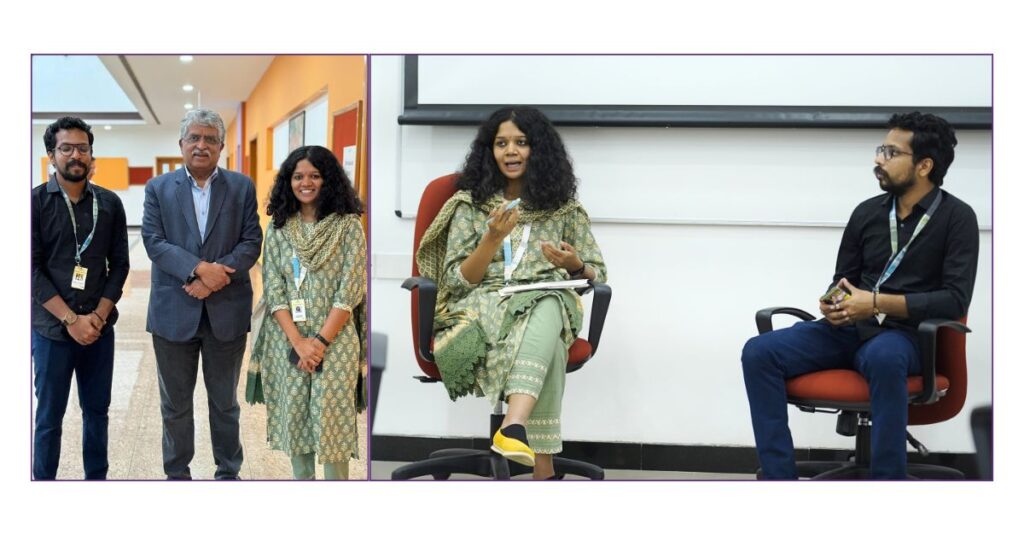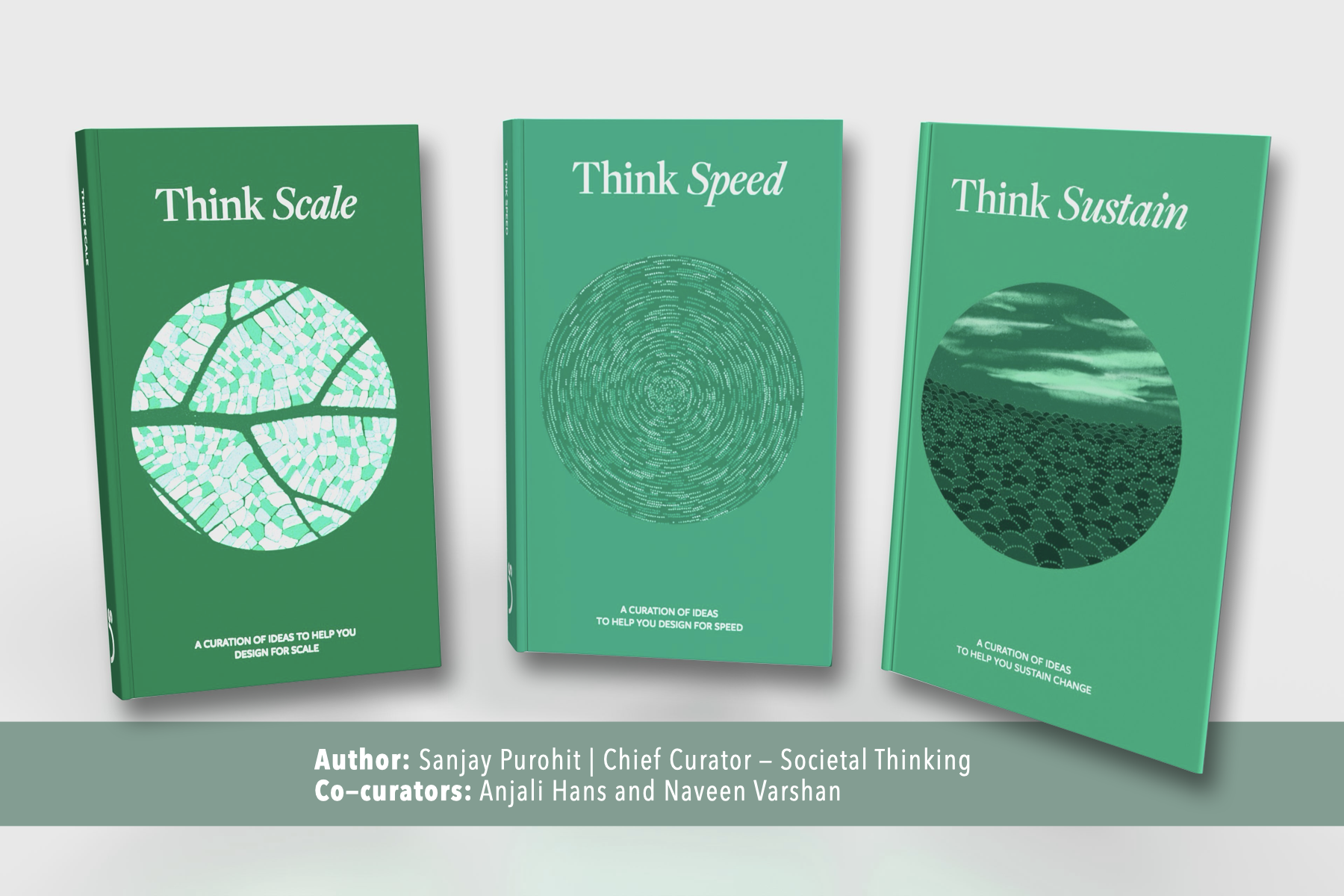“Imagine a woman in labour comes to a government hospital for childbirth. She is lying on a bed, in pain, half-naked alongside other women. There are healthcare professionals around her. She is slapped, pinched, and shouted at for expressing her pain.” – Anoushaka Chandrashekar, Manager – Advocacy, Aastrika Foundation.
Never have I ever imagined that behind the genuine smile of a mother during childbirth could lie a horrifying experience. My understanding of maternity care was challenged when I spoke to Anoushaka as I was preparing to host her at our Global Ecosystem Meetup earlier this year.
She painted a grim picture when she talked about how the lack of quality and respect can manifest in labour rooms across India:
“In private ‘high-end’ hospitals, the abuse can manifest in the form of inductions and episiotomies, which are conducted on women without any evidence, explanation or informed consent.
In labour rooms across India, a lot of power dynamics play out, especially to do with generations of disempowerment, lack of agency, and lack of choice.
As per a research study conducted in India, the rate of disrespect and abuse towards labouring women was 71%. As per another study conducted in India, the rate of episiotomies for first-time mothers was found to be 85%, even though WHO recommends not using routine episiotomies.”
Anoushaka also let me in on the insight that Dr Janhavi Nilekani’s (Founder and Chairperson, Aastrika Foundation) own maternity care experience (lack of evidence-based care) was the basis for setting up Aastrika Foundation. This organisation works towards transforming the birthing experience of women into a joyful and respectful one. It piqued my interest to deeply understand the work Aastrika does, taking me to Vani Vilas Hospital where Anoushaka showed me around the midwifery unit and Aastrika’s work in action.
Here are glimpses of our conversations from the showcase to delve into what Aastrika does and how.
 Q: Could you tell us the problem Aastrika Foundation is tackling?
Q: Could you tell us the problem Aastrika Foundation is tackling?
The maternal health landscape in India is plagued with both “Too Little, Too Late” and “Too Much, Too Soon”.
The former means that in the pockets of the country, women are unable to receive the required care at the right time. This typically leads to mortality and is reflected in the high maternal and infant mortality rates. On the other hand, “Too Much, Too Soon” is when interventions that are not evidence-based are administered to women during pregnancy and childbirth.
For instance, the rates of augmentations, inductions, and episiotomies are very high in India. More than 85% of first-time mothers in India undergo an episiotomy even though WHO recommends against the routine use of episiotomies. Similarly, the C-section rates in several parts of the country are extremely high – the India-wide private sector C-section rate is 47.4% and states like Telangana, West Bengal, and J&K have C-section rates of more than 80% in the private sector.
To put things in perspective, WHO says that 85% of women can have a physiologic or vaginal birth. Additionally, as mentioned earlier, Disrespect and Abuse of women during labour and childbirth are very common.
In terms of mortality rates, in India, while the maternal mortality rate is 97 per 100,00 live births, the neonatal, infant and under-five mortality rates are 24.9, 35.2 and 41.9 per 1000 live births respectively.
Aastrika works on strengthening the health system to offer a better birthing experience to women. We do this through the capacity building of healthcare professionals, supporting professional midwifery and creating demand for high-quality care. We want everyone to realise pregnancy and childbirth are physiological processes and not diseases.
Q: Are there any easy-to-implement simple steps we as a society can take to transform maternal care?
The maternal health system in India is complex, involving several stakeholders. One thing that I personally feel can be an easy starting point is – communication. Communicate to the woman, ask her how she is feeling, tell her about what is happening with her, tell her how she may feel at a certain stage of pregnancy or labour, and assure her that it is okay to experience certain pains or emotions. I feel open communication also helps counter our own biases and truly cater to the needs of the woman.
Q: How does Aastrika Foundation enable maternity care and the birthing experience to be safe and respectful?
Aastrika Foundation has three key objectives:
- Capacity building and health system strengthening
- Establishing a cadre of professional midwives
- Creating demand for high-quality care among governments, policymakers, and society
In terms of initiatives, we have Aastrika Sphere, our capacity-building initiative.
Aastrika Foundation also works in collaboration with the Department of Health, Government of Karnataka, to implement the professional midwifery training programme in the state of Karnataka. The Government of India launched the Nurse Practitioners in Midwifery (NPM) Program in 2018 to establish a cadre of professional midwives. This program adopts a cascade training model, where International Midwifery Educators train nurses to become midwifery educators at the National Midwifery Training Institutes. These midwifery educators establish the State Midwifery Training Institutes, where they train the midwives. These midwives will practice at Midwifery-Led Care Units at high caseload facilities in government hospitals. We currently have an NMTI in Vanivilas Hospital in Bengaluru, the largest mother and child hospital in Karnataka. We recently started the SMTI in Cheluvamba Hospital in Mysore.
Another initiative of Aastrika Foundation is advocacy, which cuts across all the other initiatives. We work on creating awareness about professional midwifery, the need for capacity building for healthcare professionals, the rights of childbearing women and the like.
We also have Aastrika Midwifery Centre, a birth centre located in South Bangalore. It is a centre for excellence and is meant to showcase the best practices in the private sector. AMC has an interdisciplinary team of midwives, doctors, and nurses, who work in collaboration to provide the best possible care for women and their newborns. The centre is designed to have a non-hospital vibe with ample space to ambulate, birth companions are encouraged, birth tools are provided to help women change positions during labour and childbirth, and women are encouraged to be part of the decisions around pregnancy, labour, and birthing.
Q: What is the relation between Aastrika Foundation and Societal Thinking?
As mentioned earlier, one of our key initiatives is a digital capacity-building platform – Aastrika Sphere – based on the Societal Thinking approach. This Societal Platform uses the Sunbird architecture and hence is free to use for everyone, and is designed for scale.
It is a collaborative platform with content from eminent public health organisations such as White Ribbon Alliance India, Maternity Foundation, Jphiego, and Fernandez Foundation. In addition to the digital platform, we have expanded Aastrika Sphere to include in-person training programmes on various topics like Respectful Maternity Care and alternative birthing positions.
Our Respectful Maternity Care training programmes in particular are meant for several stakeholders within the healthcare system. We have provided this training to doctors, nurses, security personnel, helpers, receptionists, pharmacists, and others. This ensures that the capacity to provide Respectful Maternity Care goes beyond the clinical healthcare personnel, and the woman has an overall positive experience. Thus, Aastrika Foundation distributes the ability to solve by building the capacity at various levels within the healthcare system.
Q: How can we create irreversible change in the ecosystem by enhancing the capacity of the healthcare system, thereby restoring the agency of women on a larger scale?
Our focus has been on strengthening the supply side of health systems through capacity building of the workforce and supporting the introduction of a new cadre. In future, we want to build the demand side and create awareness among women and families to demand for better care through advocacy. We believe one of the key reasons for poor quality maternal care is the lack of demand for high-quality care. Building the demand side will put pressure on the health system to deliver high-quality maternal care. Eventually, this demand will ensure the sustenance of the supply and they will feed into each other. Women and families will demand evidence-based care and the healthcare system will ensure that their workforce is kept up to date with continuous capacity building.
This conversation and my visit to the Vani Vilas Hospital made me realise two things:
- With simple mindset shifts, many aspects of maternity care can be reimagined and put into action like changing the name of the Delivery Room to the Birthing Room, creating a home-like environment that is familiar, comfortable and safe, allowing a birthing partner during delivery, helping mothers to inculcate a positive mindset, thus creating a narrative around childbirth that is respectful.
- Building the capacity of professional midwives is crucial to achieve this. By teaching mothers the concept of consent, educating them about the choices they can make, and helping them be aware of what’s right and wrong, thus unlocking their agency, the midwives can make the process of childbirth a dignified one. The Aastrika Sphere, a great manifestation of a Societal Platform, can help build this capacity.
Read more about Societal Platforms here.
 Back
Back


